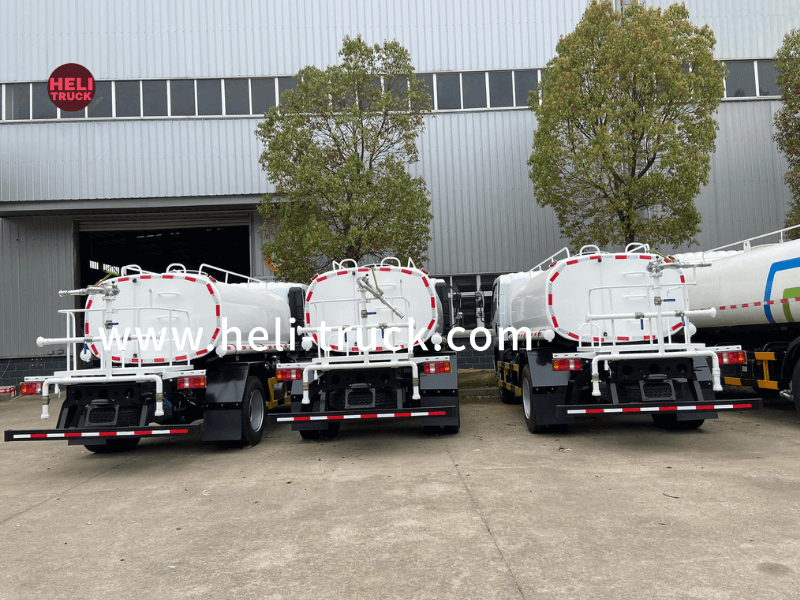Introduction
Garbage compactor trucks play a crucial role in waste management, particularly when it comes to handling hazardous materials. With the increasing amount of hazardous waste being generated worldwide, the need for efficient and safe disposal methods is more critical than ever. In this comprehensive guide, we will explore the various aspects of garbage compactor trucks designed for managing hazardous materials, including their features, benefits, regulations, and best practices.
Chapter 1: Understanding Hazardous Waste
Before delving into garbage compactor trucks for hazardous materials, it is essential to understand what constitutes hazardous waste. Hazardous waste is any material that poses a substantial threat to human health or the environment due to its chemical, physical, or biological properties. This includes substances that are toxic, flammable, corrosive, or reactive. Examples of hazardous waste include batteries, pesticides, solvents, and radioactive materials.
Chapter 2: Importance of Proper Hazardous Waste Management
Improper disposal of hazardous waste can have severe consequences for human health and the environment. When hazardous materials are not handled and disposed of correctly, they can contaminate soil, water, and air, leading to pollution and health hazards. Garbage compactor trucks designed for hazardous materials are essential tools in ensuring the safe and proper management of these potentially harmful substances.
Chapter 3: Features of Garbage Compactor Trucks for Hazardous Materials
Garbage compactor trucks used for hazardous waste management are specially designed to handle and transport these materials safely. Some key features of these trucks include:
1. Sealed compartments: Garbage compactor trucks for hazardous materials are equipped with sealed compartments to prevent leaks and spills during transportation.
2. Chemical-resistant materials: These trucks are constructed from materials that can withstand exposure to hazardous substances without deteriorating.
3. Leak-proof design: The design of garbage compactor trucks ensures that any liquids from the waste are contained and do not leak out during transportation.
4. Ventilation systems: To prevent the build-up of toxic fumes, these trucks are equipped with ventilation systems that safely extract and disperse harmful gases.

5. Emergency response equipment: Garbage compactor trucks for hazardous materials are equipped with emergency response equipment, such as spill kits and personal protective gear, to handle accidents or leaks effectively.
Chapter 4: Benefits of Using Garbage Compactor Trucks for Hazardous Materials
There are several benefits to using garbage compactor trucks specifically designed for hazardous materials management:
1. Safety: These trucks are designed to minimize the risks associated with handling hazardous waste, protecting both workers and the environment.
2. Efficiency: Garbage compactor trucks can compact waste, allowing for more significant quantities of hazardous materials to be transported in one trip, reducing the number of trips needed for disposal.
3. Compliance: Using specialized trucks ensures compliance with regulations governing the transportation and disposal of hazardous waste, avoiding fines and penalties.
4. Environmental protection: Proper management of hazardous waste helps prevent pollution and protects ecosystems and natural resources.
5. Cost-effectiveness: While the initial investment in garbage compactor trucks may be significant, the long-term savings in terms of efficiency and compliance make them a cost-effective solution for hazardous waste management.
Chapter 5: Regulations and Standards for Handling Hazardous Waste
The handling and transportation of hazardous waste are subject to strict regulations and standards to ensure the safety of workers, the public, and the environment. In many countries, there are specific laws governing the management of hazardous materials, including requirements for labeling, packaging, and transportation. Garbage compactor trucks used for hazardous waste management must comply with these regulations to prevent accidents and protect against environmental contamination.
Chapter 6: Best Practices for Operating Garbage Compactor Truck s for Hazardous Materials
To ensure the safe and effective operation of garbage compactor trucks for hazardous materials, it is essential to follow best practices. Some key recommendations include:
1. Proper training: Operators of garbage compactor trucks should receive training on handling hazardous waste, including how to use personal protective equipment and respond to emergencies.
2. Regular maintenance: Routine maintenance of the trucks, including checking for leaks, ensuring proper ventilation, and inspecting safety equipment, is crucial for safe operation.
3. Secure transportation: Hazardous waste should be securely stored and transported in sealed compartments to prevent leaks and spills.
4. Emergency preparedness: Being prepared for accidents or spills is essential. Trucks should be equipped with spill kits, first aid supplies, and emergency contact information.
5. Documentation: Keeping accurate records of the types and quantities of hazardous waste being transported is necessary for compliance with regulations and tracking waste disposal.
Chapter 7: Case Studies and Success Stories
To highlight the effectiveness of garbage compactor trucks for hazardous materials management, we will examine some case studies and success stories from organizations that have implemented these trucks in their waste management practices. These examples will demonstrate the positive impact of using specialized vehicles for handling hazardous waste.
Conclusion
Garbage compactor trucks for hazardous materials are indispensable tools in the proper management of hazardous waste. By investing in these specialized vehicles and following best practices, organizations can ensure the safe and compliant disposal of hazardous materials, protecting human health and the environment. With the increasing focus on sustainability and environmental responsibility, the role of garbage compactor trucks in hazardous waste management will continue to be crucial in the years to come.
